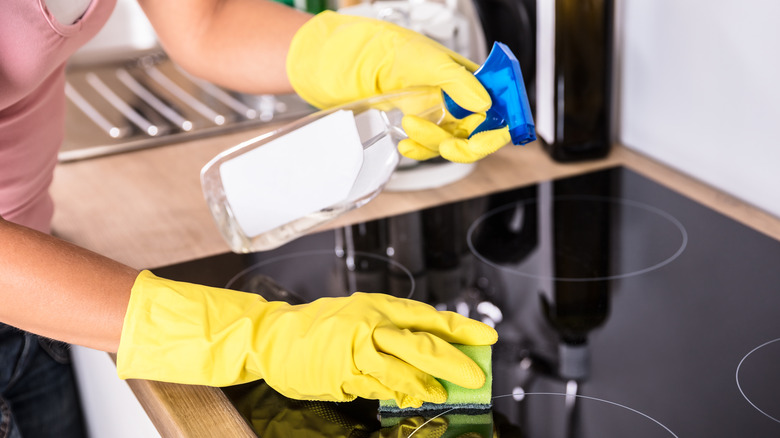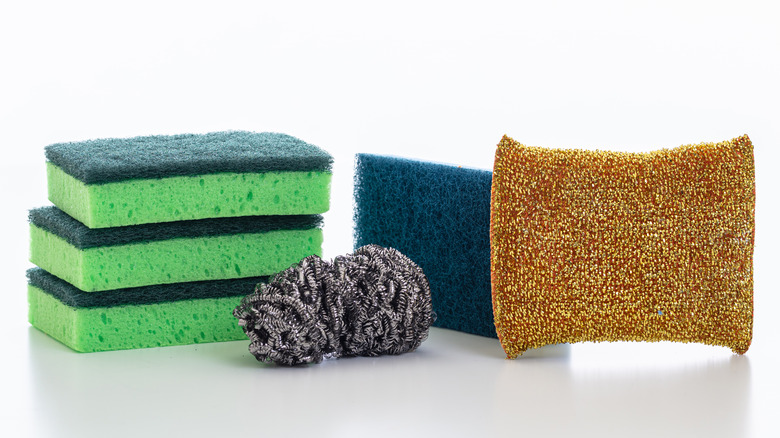How Often You Should Really Replace Your Kitchen Sponge
Thanks to the pandemic, many of us have been spending more time in our kitchens — baking bread, whipping up egg salad, and preparing home-cooked dinners. And with those added messes, you're probably finding you're using your kitchen sponge more frequently. But how do you know when your kitchen sponge is ready for the garbage pail?
Is it that important to replace it, even if it looks clean? It is. According to The Healthy, your innocent little kitchen sponge can become home to a bacterial ecosystem that houses dangerous germs and — potentially — even the virus that causes COVID-19. As a result, The Healthy suggests that you should replace your kitchen sponge every one to two weeks, because once germs set up house in your kitchen sponge, they're planning a long-term stay.
Taste of Home suggests that you replace your kitchen sponge every week, especially if you tend to use it a lot and for a variety of tasks. "Like with all cleaning products, it all comes down to you," explains Melissa Maker, host of a cleaning YouTube channel and founder of the house cleaning service, Clean My Space. "If you're using a cleaning product every single day to clean various things, it has to be replaced sooner."
Can you clean your kitchen sponge rather than replace it?
While regularly replacing your kitchen sponge is going to be the best way to combat germs, if you need to extend the life of your current sponge, there are recommended ways to clean it. The best way to reduce germs in your kitchen sponge is to wash it every day with soap and hot water, and then microwave it for two minutes while it's still wet. Alternatively, you can also run it through your dishwasher, or soak it for 60 seconds in bleach and hot water (via Today).
However, if all this germy talk is now making you squirmy about your traditional kitchen sponge, there are other options. Consider trying a silicone sponge, which won't retain as much bacteria. A brush could also be a good option, particularly one that dries quickly to help keep germs at bay — less moisture means fewer bacteria. Another choice is the Swedish dishcloth, which can be sanitized easily in the dishwasher or washing machine (via Simple Most).
Whichever kitchen sponge option you choose, when focusing on keeping your surfaces clean, just always keep in mind that those surfaces will only stay as clean as the tools you use on them.


